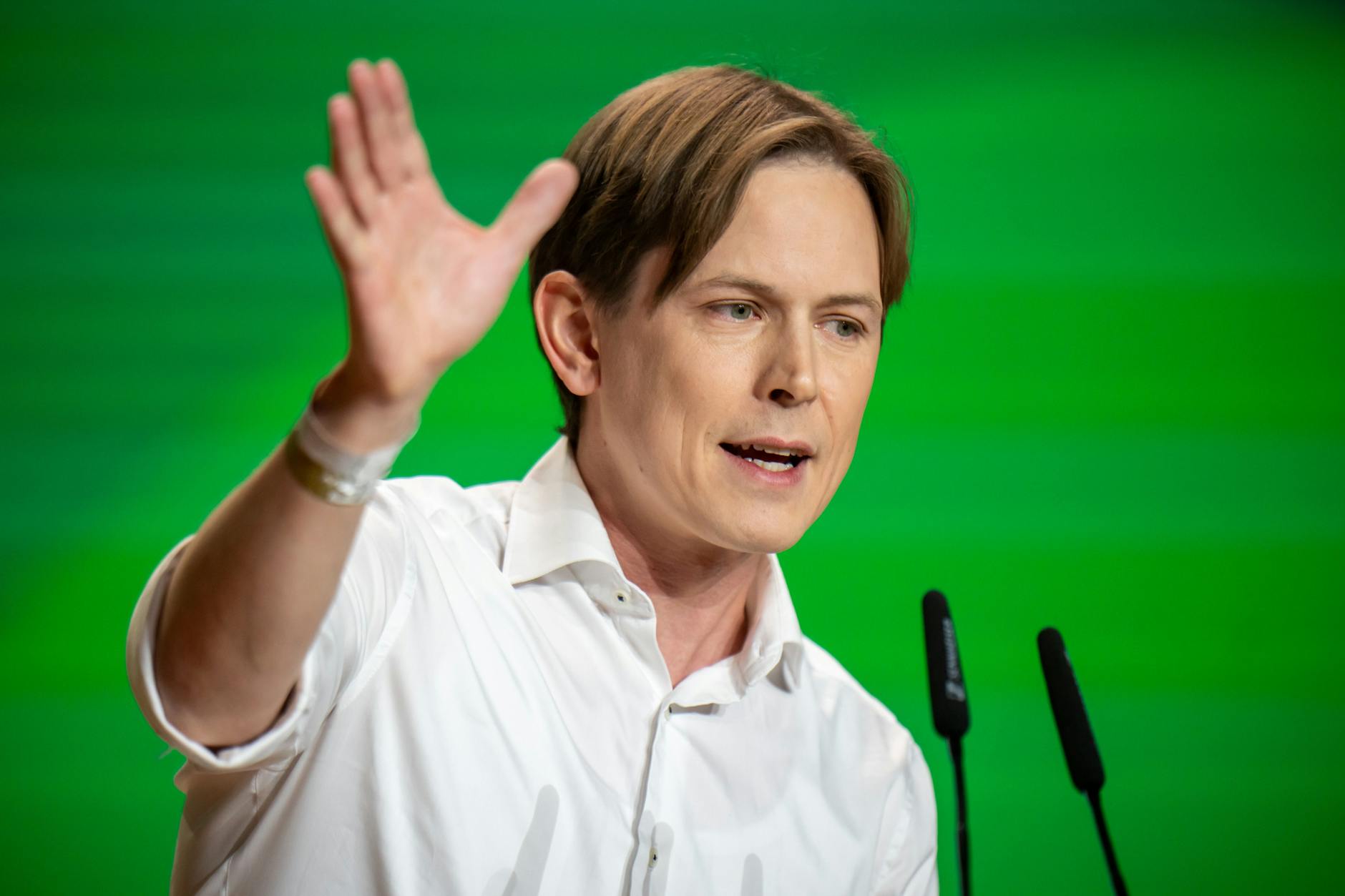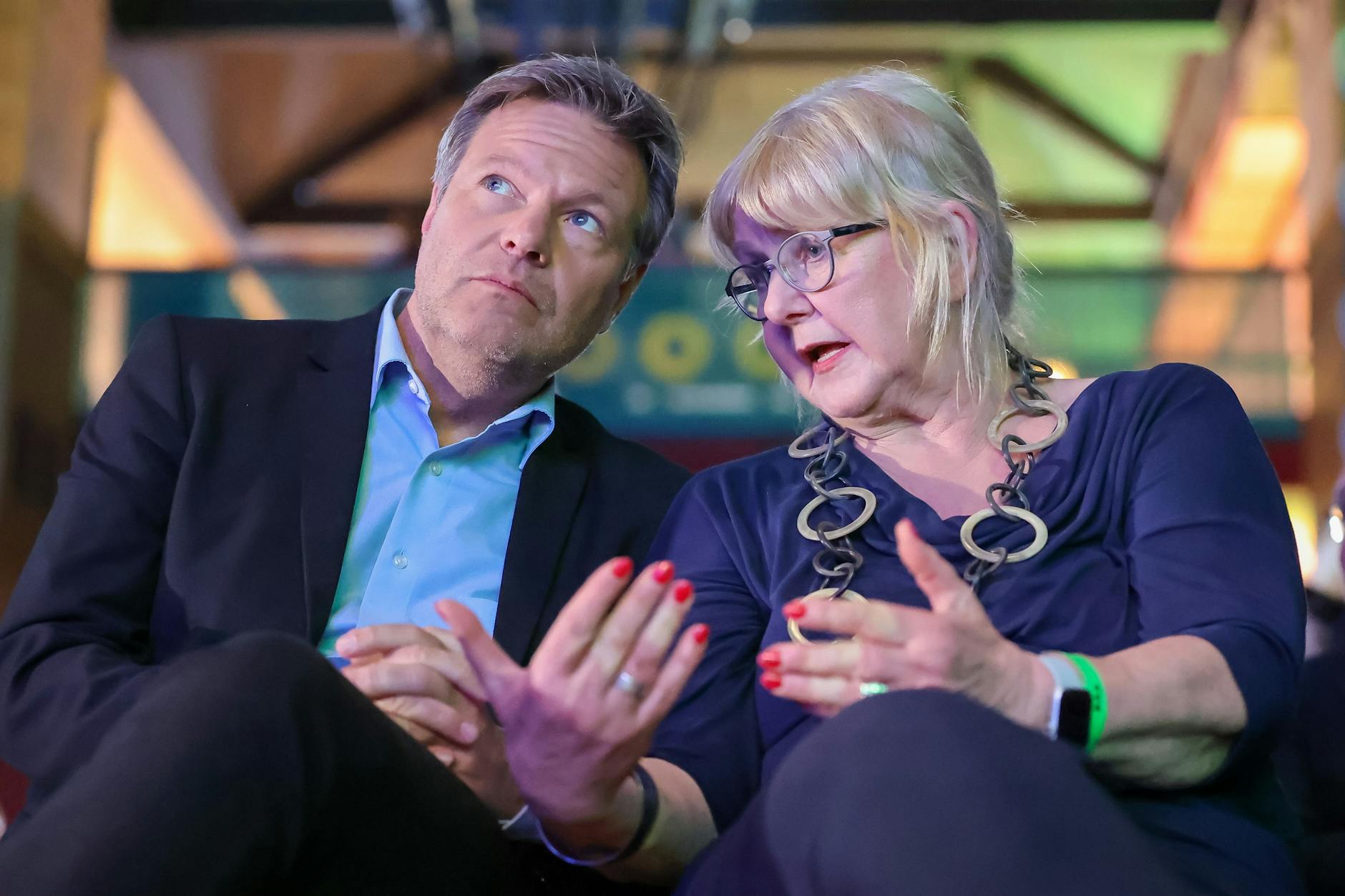The Greens want to solve their Eastern problem: Only with Birthler and Kowalczuk it won't work

Three years ago, Heiko Knopf gave a speech at the Green Party conference that sounded different from what was usually heard there. This was due in part to the slight dialect that betrayed Knopf's Thuringian origins. An East German in the Green Party? Who wasn't a civil rights activist from the GDR era? Knopf was born in Jena in 1989, the year of reunification.
He talked about his mother, who had worked as a precision mechanic in the GDR, manufacturing optical measuring instruments, was transferred to the company kitchen after reunification, and then became unemployed. She struggled for years as a temporary worker. As a child, he "fully understood what it means when you write 50 applications a week but ultimately don't get a job," Knopf said, quickly adding the phrase East Germans use when they talk about the post-reunification period in the West: "I'm not saying that to complain."
An Ossi on the board that nobody listens toKnopf pointed out that in the East, wages are still lower for the same work, and assets are much smaller. He said: Whether the Greens' success in making a breakthrough will also be decided in the East. The party elected him to the executive committee, but in the years that have passed since then, it hasn't seemed as if they were listening to him. Knopf is still on the executive committee, the only East German alongside five West Germans. The token Ossi of the party leadership. He is 35 years old and an optical engineer with a doctorate, which also sets him apart from many Greens who have only worked in politics.

But now his name appears on a new paper, along with that of Felix Banaszak, the party chairman from Duisburg. A discussion paper with which the Greens want to address their eastern problem.
They have now suddenly discovered this. Years after pretty much everyone who looks at the party and the East from the outside. Months after the end of the traffic light coalition and the federal election, almost a year after the elections in Thuringia, Saxony, and Brandenburg, in which the miserable results for the party were no longer a surprise. Knopf and Banaszak write that in recent years the Greens have viewed the five percent hurdle in the East more often from below than from above. And: "Have we given up on the East – or has the East given up on us?" In response, they write: "Neither." This, however, is not a finding. Rather, it is a claim.
What the Greens are planning in the East nowOne thing that can help with this finding is that anyone who manages to go years without reacting to such election results in the East probably doesn't care much about the East. In the East, the Greens are a controversial topic, if they are an issue at all. In current polls, they are polling between three and five percent in all five East German states. The party, which confidently negotiates with the black-red federal government on everything that requires a two-thirds majority in the Bundestag, such as the election of a judge, derives its legitimacy almost exclusively from the West. For many East German voters, the influence the Greens continue to have in political Berlin, even after the end of the traffic light coalition, seems strange. Has the East given up on the Greens? That's what it looks like at the moment.
Have the Greens given up on the East? There's a documentary about the 2021 federal election campaign in Thuringia, the constituency where Hans-Georg Maaßen ran. In one scene, the woman who toils there for the Greens learns that the party leadership in Berlin is calling for people to vote for their rival from the SPD. Without meeting her beforehand, she is completely devastated and is no longer in the party.
But now the Greens are no longer in government; according to the discussion paper, they want to take the time to review the 35 years since reunification. Sounds like the greatest possible turnaround for the East. "What did we convince people in the East with, and what didn't we?" one might ask. After all, many GDR civil rights activists joined the party, Alliance 90. The Greens want to hold an Eastern Congress "this fall." They want to visit their associations in the East more often and also come to the East for public discussions. They don't want to "give the impression that we have the best ideas that just haven't been understood in the East yet." Good idea. But will the Greens, of all people, be able to pull it off?
The Green Party's Eastern experts: GDR civil rights activistsUnfortunately, it must be said that the party convened an Eastern Advisory Council even before its analyses and congresses. In doing so, it demonstrated how narrow its view of East Germany is. Especially when you consider the well-known names that are present alongside politicians from the East German associations.

Katrin Göring-Eckardt, Marianne Birthler, and Ilko-Sascha Kowalczuk are to broaden the Green Party's focus on the East in 2025. The two East German civil rights activists and the historian, who is close to many East German civil rights activists, are to be elected. Their achievements during the fall of the Berlin Wall are rightly held in high esteem, but representatives of this movement have not spoken for most people in the East for decades. They didn't perform particularly well in the 1990 election either. The Greens should have noticed this. If they had even the slightest inkling of the East.
The civil rights activists don't even want to do that, to speak for the East Germans, for heaven's sake. After all, they consider most people in the East – unlike themselves – to be more or less damaged by the dictatorship. Marianne Birthler summarized a widespread position among them last year in an interview with the Tagesspiegel newspaper: "In the GDR, people didn't learn how to debate publicly and freely. There was only black and white, right and wrong, us and them. Differentiation was neither learned nor taught in the GDR. That's why positions in the East today are more radical, more irreconcilable. There is no tradition of negotiating positions and tolerating different opinions."
Göring-Eckart could probably have said the same thing, when two years ago she accused "some" East Germans of being "somewhere stuck in the glorification of dictatorship" because "someone else had to do everything for them." Also in the Tagesspiegel , the newspaper in which singer-songwriter and civil rights activist Wolf Biermann diagnosed East Germans as "chronically mentally ill."
Or Ilko-Sascha Kowalczuk, who, as a historian, contributed greatly to the understanding of the GDR and the period of reunification with his intelligent books, but who is now also examining the psyche of East Germans. He attests to their post-dictatorship damage, which he calls "freedom shock." He wrote an entire book on this theory, intended as a counter to Dirk Oschmann's bestseller about the denigration of East Germans, and it was very well received in the West. Another East German on the Green Party advisory board is Grit Friedrich, who, likewise, was active as a civil rights activist in the GDR. Today, you can find a lecture by her online in which she explores the question of whether the different image of Russia in East Germany is due to the "abuse of trauma" of East Germans in Russian propaganda.
This is the perspective of the Green Party's well-known experts on the East. It is certainly legitimate, but it is neither new nor surprising, and it generates no discourse in the East. It is shared by virtually no one outside of their own circle, and has been partially refuted by scholarly works ( the chronic psychological damage ). It often revolves around the past, the GDR, and the dictatorship.
One could complement them on an advisory board, challenge them, one could appoint people like Dirk Oschmann to lead productive discussions and advance thinking about the East. Or the sociologist Steffen Mau, who soberly explores East-West differences. Perhaps, as a scholar, he is not available for such purposes. One could have included entrepreneurs, people from the heart of East German society, trade unionists who are familiar with the current problems between the Baltic Sea and the Ore Mountains. This could possibly lead to insights that go beyond what people in the West—and thus also among the Greens—already think about the East.
These are the members of the "Board of Directors of the Alliance Greens East" Felix Banaszak, Federal Chairman Marianne Birthler, former Federal Commissioner for Stasi Records Judith C. Enders, political scientist, co-founder of Third Generation East Germany Stefan Fassbinder, Mayor of Greifswald Grit Friedrich, GDR civil rights activist Katrin Göring-Eckardt, Member of the Bundestag Michael Kellner, Member of the Bundestag Carla Kniestedt, journalist and former member of the state parliament in Brandenburg Heiko Knopf, Deputy Federal Chairman Ilko-Sascha Kowalczuk, historian Tobias Kremkau, District Chairman of the Greens Altmark Luna Möbius, activist and political communications officer Lukas Mosler, State Party Council of Saxony Nicole Peter, Green Forum for Self-Government Mecklenburg-Western Pomerania Franziska Schubert, Parliamentary Group Leader Saxony Susan Sziborra-Seidlitz, State Chairwoman of Saxony-Anhalt
Tammo Westphal, Green Youth
Berliner-zeitung


